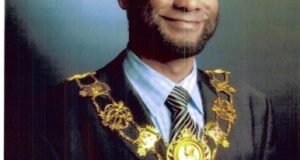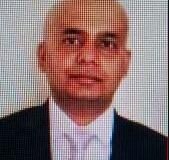Makkah Al-Mukarramah: I still remember my childhood when an old man of 70 years, Abdul Jabbar, used to come from the district of Faridpur (now in Bangladesh) took the silent alleys of our village in the night, chanting and calling, to wake up Muslims for the last meal before another day of Ramadan fasting begins. Abdul Jabbar reminds one of a character from the book The Thousands and One Nights. He is a strange person who comes out from the depth of the night to disturb the quietness by a shrill cry calling, Suhuoor…Suhoor.
Now that person is replaced in a big city like London by Muslim Community Radio (MCR) – Ramadan Radio – in East London, Kismat Radio and Islam TV Channel calling Muslims to wake up for their breakfast. In Ramadan, all Muslims who want to fast should eat before starting to fast.
The Month of Mercy, the blessed month came and is passing away very fast. Today, Wednesday, is the 24th of Ramadan. More than two-third of the blessed month has passed; still there is time to get our sins cleared, still there is time to ask for forgiveness from Allah the Almighty who is ready to forgive our sins. The remaining days and nights of the blessed month is full of Allah’s mercy and blessing. In this part of the month, specially during the last 10 days and nights, a night which is the greatest night of the year, the Lailatul Qadr. During these ten days and nights, Muslims spend in the Mosque for I’tikaf.
I’tikaf
I’tikaf means seclusion and staying in the Mosque with the intention of becoming closer to Allah. The Prophet (peace be upon him) would perform I’tikaf for last 10 days every Ramadan. In the year that he died, he performed it for twenty days. (Related by Al-Bukhari, Abu Dawud, and Ibn-Majah). The next Friday on 1st of July (26 Ramadan) will be the Jumatul-Widah, the last Friday of the Blessed Month of Ramadan.
As the month of blessings and mercy is coming to the end, similarly the recitation of the complete Qur’an is also coming to the Khatam which might be on the 29th night of Ramadan. The last ten nights are very important nights. Ayesha (may Allah be pleased with her) said that the Prophet (peace be upon him) used to exert himself in night prayer especially during the last 10 days of Ramadan.
Lailatul Qadr (The Night of Decree)
Lailatul-Qadr is the greatest night of the year like the Day of Arafah is the greatest day of the year. It is a night about which Allah revealed a full Surah, Suratul-Qadr (97:1-5) and the 3rd to the 6th verses of the Surat ad-Dukhan (44:3-6). Allah the Almighty said in the Qur’an, “Indeed We have revealed it (Qur’an) in the Night of Decree. And what will explain to you what the Night of Decree is? The Night of Decree is better than a thousand months. Therein descends the Angels and the Spirit (Jibreel) by Allah’s permission, on every errand: (they say) “Peace” (continuously) till the rise of morning!” (97:1-5). A person who misses Lailatul Qadr is really a deprived person!
Abu Hurairah reported that the Prophet (peace be upon him) said, “The blessed month has come to you. Allah has made fasting during it obligatory upon you. During it the gates to Paradise are opened and the gates of Hellfire are locked, and the devils are chained. There is a night (during this month) which is better than a thousand months. Whoever is deprived of its good is really deprived (of something great). (Ahmad, an-Nisai and al-Bayhaqi).
Aishah said, “Allah’s Messenger used to practice I’tikaf in the last ten nights and say: ‘Seek out Lailatul-Qadr in the (odd nights) of the last ten days of Ramadan.” (Bukhari and Muslim).
Zakah
The word Zakat in Arabic means purification. The giving of Zakat (obligatory charity) is the third pillar of Islam. There are two types of Zakat: Zakat-ul-Fitr (charity of Eid-ul-Fitr, given to the poor before Eid prayer) and Zakat Al-Maal (purifying charity, paid on one’s wealth).
It is to be noted that Zakat-ul-Fitr was declared by the Prophet (peace be upon him) as a prerequisite for the acceptance of fasting. But when and whom to pay Zakat-ul-Fitr? First of all, who has to pay? Each and every Muslim, regardless of his social status, is required to give a certain amount of charity usually in the form of food grains, barley, raisin etc. called Zakat-ul-Fitr at the end of Ramadan and before the Eid-ul-Fitr so that every member of the Muslim community, especially the poor, have something to eat on the day of Eid. It is meant to cement the relationship between the members of the Muslim society, to alleviate the pain of the poor, to cultivate the sense of brotherhood and solidarity in the hearts of the Muslims, etc., said Sheikh Yusuf Al-Qaradawi.
Dr. Qaradawi also said, “If a person dies before Maghrib on the last day of Ramadan, Zakat-ul-Fitr would not be obligatory upon him even if he fasted all the other days of the month. Conversely, if a child is born after Maghrib on the last day of Ramadan, i.e. the first night of Shawwal, it would be obligatory to pay Zakat: Zakat-ul-Fitr on his or her behalf. This view is unanimously agreed upon by Muslim scholars.” The head of the household must pay for every member of the family, even for the newborn. The Muslim is supposed to pay Zakat-ul-Fitr (i.e., Zakah of breaking the fast) in the country where he or she spends the first night of the month of Shawwal.
So far as the Zakat-ul-Maal is concerned, it is also obligatory for a Muslim, who possesses the minimum wealth on which Zakat is applicable, to give out Zakat. In his Friday sermon at the Grand Mosque in Makkah al-Mukarramah, Imam and Khateeb Sheikh Dr. Saleh Bin Mohammad Aal-Talib, urged Muslims to be God-Conscious and give charity to the poor and the needy. He said Zakat removes miserliness and cleans the heart from cruelty.
Allah has stressed on payment of Zakat, which appears in the Holy Qur’an more than 30 times. There are many verses of the Holy Qur’an and sayings of the Prophet (peace be upon him) that urge Muslim to give charity for the sake of Allah. Sheikh Aal-Talib said charity is an act that attracts Allah’s mercy. He said giving charity secretly extinguishes God’s anger and it is a blessing for the person’s wealth. A person who does not give in charity will be punished by removal of the blessing (barakah) from his wealth.
Zakat-ul-Fitr is associated with the Eid and is meant to create happiness in such a way that includes the poor and the needy. That is why the Prophet (peace be upon him) said: “Make them (i.e., the poor) rich on this day (i.e. the day of Eid)”.
Charity in Ramadan
About charity and spending from the wealth in the Way of Allah or for the Cause of Allah, Allah the Almighty said in the Qur’an, “The likeness of those who spend their wealth in the Way of Allah, is as the likeness of a grain (of corn); it grows seven ears, and each ear has a hundred grains. Allah gives manifold increase to whom He wills. And Allah is Al-Sufficient for His creatures’ needs, All-Knower.” (Al-Qur’an, 2:261).
Allah also said, “Those who spend their wealth in the Cause of Allah, and do not follow up their gifts with reminders of their generosity or with injury, their reward is with their Lord. On them shall be no fear, nor shall they grieve.” (Al-Qur’an: 2: 262)
Ramadan is also the month of charity. Prophet Muhammad (peace be upon him) said, “…Whoever draws nearer (to Allah) by performing any of the (optional) good deeds in (this month), shall receive the same reward as performing an obligatory deed at any other time; and whoever performs an obligatory deed in (this month), shall receive the reward of performing seventy obligations at any other time. It is the month of patience, and the reward of patience is Paradise. It is the month of charity, and a month in which a believer’s sustenance is increased. Whoever gives food to a fasting person to break his fast shall have his sins forgiven, and he will be saved from the Hell-Fire, and he shall have the same reward as the fasting person, without his reward being diminished at all.” (Reported by Ibn Khuzaymah)
Spend more time with the Qur’an. Read the Qur’an every day. Try to finish at least one time the whole Qur’an during this month by your own personal reading. Pray on time and observe all the prayers. Do not ignore the Tarawih. Make more extra and voluntary prayers. Do as much worship as you can. Do more dhikr (remembering Allah) and du’a (supplication) for yourself and for others. Repent and seek forgiveness for yourself and for others as much as you can. This is the best time for devotion and seeking Allah’s forgiveness. Seek the Night of Qadr by special devotion during the last 10 nights of this month.
The month of blessing and forgiveness is passing away very quickly. Do not miss the remaining last ten days and nights. Let us clear our sins. Let us seek the Night of Qadr.
Makkah al-Mukarramah
29 June 2016
 Weekly Bangla Mirror | Bangla Mirror, Bangladeshi news in UK, bangla mirror news
Weekly Bangla Mirror | Bangla Mirror, Bangladeshi news in UK, bangla mirror news







